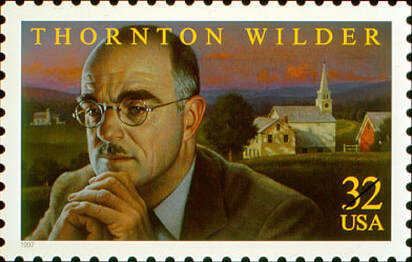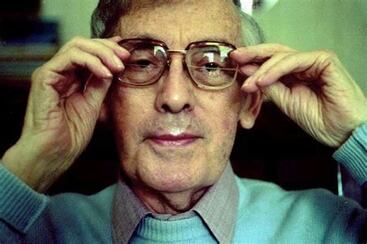 LONDON, ONTARIO – Lent is upon us for 2020; a time when observant Christians are called upon to reflect on their mortality; to remember that they come from dust and sooner or later shall return to it and should therefore orient their lives and their allegiances in the light of that certain knowledge. Last week I sat in a mostly darkened church in the early evening of Ash Wednesday waiting for the Mass to get underway and (I hope) subtly stared at a four or five year old boy a couple of rows ahead of me. Sitting beside his two older sisters and his father, the boy was calm, attentive and quietly observant in a way that bespoke a sense of purpose it seemed unlikely he could fully possess just yet. I nonetheless envied him his initiation at such a young age into the deepest mysteries of life. “Already,” I thought approvingly, “he is learning to look at everything hard enough.” And where did that phrase come from? Ah, yes. I reckon I was at least twice that boy’s age when I saw my first play. It was a production of American novelist and playwright Thornton Wilder’s Pulitzer Prize-winning script from 1938, Our Town, which was that year’s big student show at South Secondary School where all three of my brothers were fruitfully enrolled. Already regarded as a classic, I was seeing the play about twenty-five years after its premiere. I consider it a tribute to the play’s uncommon power and universality that even though the story is set in 1901, this ten or eleven year-old was instantly and effortlessly drawn into its pathos and drama. Sure, some of the details were slightly antique or nostalgic but the central issues Our Town explores with such uncanny ingenuity – love, death, duty, honour, faith and fate – are perpetual and eternal. Even though all the teenaged actors for that performance were amateurs, in my eyes at that time they were practically adults and I found their mastery of stagecraft utterly compelling. Thornton Wilder (1897–1975) once expressed his drive to explore the eternal verities of human life and human nature in virtually everything he wrote: “I am interested in the drives that operate in society and in every man. Pride, avarice, and envy are in every home. I am not interested in the ephemeral – such subjects as the adulteries of dentists. I am interested in those things that repeat and repeat in the lives of millions.” Our Town was the first full-length play to be completed by the almost forty year-old Wilder who had already picked up his first Pulitzer Prize for his best-selling novel from a decade before, The Bridge of San Luis Rey and would pick up a third for his final play, The Skin of Our Teeth. With Our Town Wilder had gone for a more naturalistic approach, dispensing with any elaborate sets or props and eliminating the fourth wall completely by having the play narrated by a character who introduces himself as the Stage Manager. In the way that this character directs all the action, introduces the other characters and tells us what they’re up to, sometimes steps into a scene to play a bit part, cuts a scene short when its point has been made or jumps the tale forwards or backwards in time, this apparently unelaborated manner of presentation (in reality, it’s anything but) subtly draws the viewer into the very heart of the story as a kind of co-creator; as a duly implicated participant. To a more cynical or sophisticated playgoer or reader, Our Town might seem like a celebration of corny banalities with nothing of any pertinence to tell us today. And sure enough, I don’t think it’s produced as frequently as it once was, now that we’re so claustrophobically enmeshed in this flippant age of corrosive irony. But this play’s got some rather merciless teeth which are revealed in its very first expositional scene. Once the Stage Manager has given a brief historical and geographical overview of Grover’s Corners, New Hampshire, we see the morning newspaper boy walking along chatting to the town doctor who’s just returned from an overnight delivery of twins in the Polish section of town. Then as the boy wanders off to continue his rounds and Dr. Gibbs stands scanning the front page of The Sentinel, the Stage Manager steps forward to say: “Want to tell you something about that boy Joe Crowell there. Joe was awful bright. – graduated from high school here, head of his class. So he got a scholarship to Massachusetts Tech. Graduated head of his class there, too. It was all wrote up in the Boston paper at the time. Goin’ to be a great engineer, Joe was. But the war broke out and he died in France. – All that education for nothing.” In the play’s third act, the proceedings take a sudden turn for the metaphysical; a shift that is made more readily because of the barebones sketchiness of the props and sets. The audience was left to its own devices to imagine the physical environments of the earlier acts and continues making that effort now that we’re in the Grover’s Corners Cemetery where the dead are conversing with one another. One of their newest residents or internees is Emily; a young mother who has died giving birth to her second child and whose courtship and wedding we were following in the earlier acts. Emily learns that in her new status as a ghost, it is possible to revisit any day of her life as a mute and invisible witness and because she has scarcely made the transition from life to death, she longs to do so and brushes off the warnings of her cemetery-mates of older vintage who try to dissuade her. They tell her that it’s too heartbreaking to witness the way in which the living are so consistently distracted and troubled that they're rarely able to appreciate the fleeting miracle of their existence. Emily is told that the proper duty of the dead “is to forget all that, and think only of what’s ahead, and be ready for what’s ahead. When you’ve been here longer, you’ll understand.” “At least choose an unimportant day,” her mother-in-law advises her. “Choose the least important day in your life. It will be important enough.” Emily chooses the early morning of her twelfth birthday and watches, mesmerized by her sense of loss, as her parents make breakfast and set out her presents. “I can’t bear it," Emily soon declares. "They’re so young and beautiful. Why did they ever have to get old? Mama, I’m here. I’m grown up. I love you all, everything. – I can’t look at everything hard enough.” After a few more minutes of watching how routine and exigency unfailingly preclude intimacy and reflection, Emily reaches her limit and can stand no more: “It goes so fast. We don’t have time to look at one another . . . Goodbye to clocks ticking . . . and Mama’s sunflowers. And food and coffee. And new-ironed dresses and hot baths . . . and sleeping and waking up. Oh, earth, you’re too wonderful for anybody to realize you.” Before returning to the graveyard, Emily asks the Stage Manager, “Do any human beings ever realize life while they live it – every, every minute?” "No,” he tells her flatly, then adds, “The saints and poets, maybe – they do some."  Edwin Muir (1887 – 1959) Edwin Muir (1887 – 1959) Well, we’ll leave the saints for another day but there are two 20th century British poets – not of the first rank in terms of public renown – who, like Wilder in Our Town, I treasure for their deft exploration of that twilight realm between life and death. The first is the Orkney-born Edwin Muir (1887–1959) who may be best known as an early English translator of Franz Kafka. After a poor but idyllic childhood Muir's family was relocated to Glasgow in his fourteenth year where his two brothers and both parents died of tuberculosis within the next five years. Here is his late poem, The Brothers: Last night I watched my brothers play, The gentle and the reckless one, In a field two yards away. For half a century they were gone Beyond the other side of care To be among the peaceful dead. Even in a dream how could I dare Interrogate that happiness So wildly spent yet never less? For still they raced about the green And were like two revolving suns; A brightness poured from head to head, So strong I could not see their eyes Or look into their paradise. What were they doing, the happy ones? Yet where I was they once had been. I thought, How could I be so dull, Twenty thousand days ago, Not to see they were beautiful? I asked them, Were you really so As you are now, that other day? And the dream was soon away. For then we played for victory And not to make each other glad, A darkness covered every head, Frowns twisted the original face, And through that mask we could not see The beauty and the buried grace. I have observed in foolish awe The dateless mid-days of the law And seen indifferent justice done By everyone on everyone. And in a vision I have seen My brothers playing on the green.  Charles Causley (1917 – 2003) Charles Causley (1917 – 2003) And finally here is the Cornish poet and schoolmaster, Charles Causley (1917–2003), with one of his last poems, Eden Rock, a poem I latched onto at the time of my own parents’ deaths and frequently share with newly orphaned friends for the imaginative consolations it provides. They are waiting for me somewhere beyond Eden Rock, My father, twenty-five, in the same suit Of Genuine Irish Tweed, his terrier Jack Still two years old and trembling at his feet. My mother, twenty-three, in a sprigged dress Drawn at the waist, ribbon in her straw hat, Has spread the stiff white cloth over the grass. Her hair, the colour of wheat, takes on the light. She pours tea from a Thermos, the milk straight From an old H.P. sauce bottle, a screw Of paper for a cork; slowly sets out The same three plates, the tin cups painted blue. The sky whitens as if lit by three suns. My mother shades her eyes and looks my way Over the drifted stream. My father spins A stone along the water. Leisurely, They beckon to me from the other bank. I hear them call, ‘See where the stream-path is! Crossing is not as hard as you might think.’ I had not thought that it would be like this.
3 Comments
Bill Craven
2/3/2020 09:07:54 am
I sent this beautiful article on to two of my children-- Doug and Kerry who are both published authors. (When you ask Alexa who Douglas Craven is, she give a brief cv.)
Reply
Max Lucchesi
3/3/2020 09:04:07 am
Herman. Many lives of 'Their Town' paper boys were wasted in France. Stalin, answering criticism to the loss of life caused by his destruction of the Kulaks to facilitate the collectivization of Agriculture 1928-31 said, "The death of one man is a tragedy, the death of a million merely a statistic." I have always believed that a million deaths are a million tragedies. In that vein I offer you the first verse of 'Death Shall Have no Dominion' by Dylan Thomas.
Reply
David Goodden
5/3/2020 02:37:13 am
Daniel Klein refers to this scene in 'Our Town' where Emily asks "Do any human beings realize life while they live it - every, every minute?" in 'Every Time I find the Meaning of Life They Change It'.
Reply
Your comment will be posted after it is approved.
Leave a Reply. |
HERMANEUTICS
If you would like to contribute to the ongoing operations of Hermaneutics, there are now a few options available.
ALL LIFE IS A GIFT :
THE IMPORTANCE OF TRADITION :
Archives
June 2024
Categories
|

 RSS Feed
RSS Feed